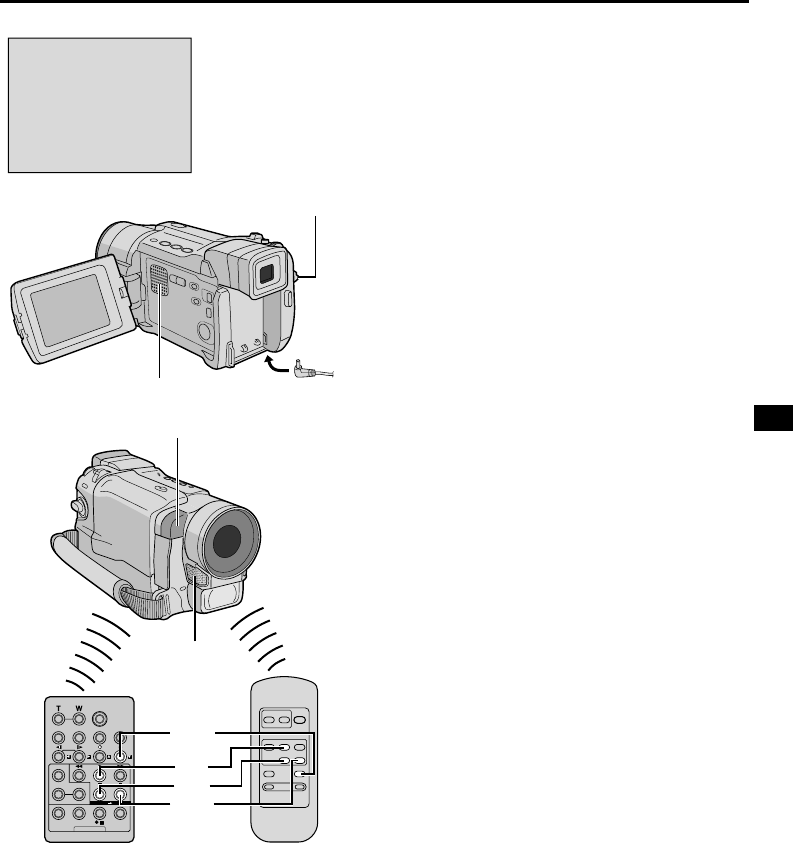
EN
63
Audio Dubbing
The audio track can be customized only when
recorded in the 12-bit mode (੬ pg. 45).
NOTES:
● Audio Dubbing is not possible on a tape recorded in 16-
bit audio, on a tape recorded in the LP mode or on a
blank portion of a tape.
● To perform Audio Dubbing while watching on the
television, make connections (
੬ pg. 22).
1 Play back the tape to locate the point where
editing will start, then press PAUSE (6).
2 While holding A.DUB (e ) on the remote control,
press PAUSE (6). “6e” appears.
3 Press PLAY (
4
) , then begin “narrating”.
Speak into the microphone.
•To pause dubbing, press PAUSE (6).
4 To end Audio Dubbing, press PAUSE (6), then
STOP (5).
To hear the dubbed sound during playback . . .
..... set “12BIT MODE” to “SOUND 2” or “MIX” in the
Menu Screen (੬ pg. 48, 49).
NOTES:
● Sound is not heard from the speaker during Audio
Dubbing.
● When editing onto a tape that was recorded at 12-bit,
the old and new soundtracks are recorded separately.
● If you dub onto a blank space on the tape, the sound
may be disrupted. Make sure you only edit recorded
areas.
● If feedback or howling occurs during TV playback, move
the camcorder’s microphone away from the TV, or turn
down the TV’s volume.
● If you change from 12-bit to 16-bit in mid-recording and
then use the tape for Audio Dubbing, it is not effective
from the point where 16-bit recording began.
● During Audio Dubbing, when the tape moves to scenes
recorded in the LP mode, scenes recorded in 16-bit
audio or a blank portion, Audio Dubbing stops
(
੬ pg. 85).
e
6
A.DUB
PLAY
PAUSE
STOP
Speaker
Stereo
microphone
Audio Dub
Standby mode
Power Switch
Remote sensor
Display
RM-V717U
(Provided with
GR-DVL720 only)
RM-V715U
(Provided with
GR-DVL520/
DVL320 only)
OR


















